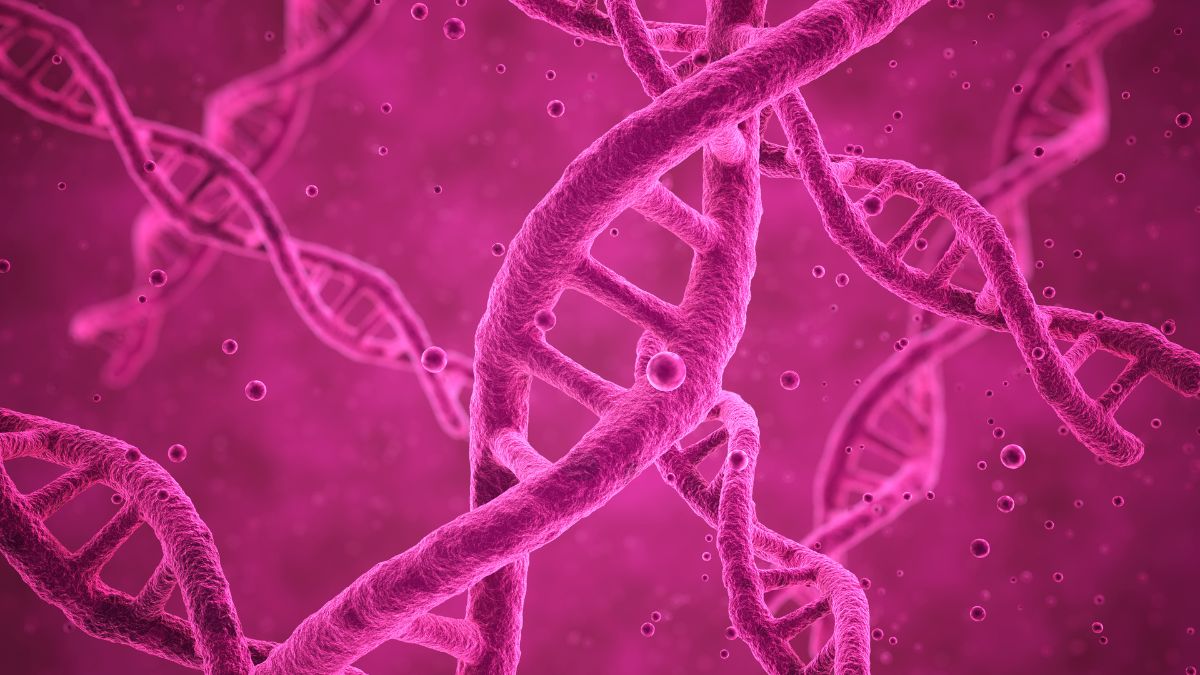In the quest for love and connection, couples are constantly seeking new ways to strengthen their bond and build a lasting relationship. DNA compatibility testing is gaining significant attention as a conversation-starter for new couples before marriage. Let’s learn more about it with our expert, Dr Aparna Ganapathy, Director of Population Genomics.
The Couples Who Swab Together: DNA Compatibility Testing
The New Pre-Marriage Conversation Starter
Wedding planning these days goes far beyond picking outfits, booking venues, or curating a dreamy honeymoon. For many modern couples, another item is quietly making its way onto the pre-marriage checklist,DNA compatibility testing.

Once considered the domain of doctors and researchers, these genetic screenings are now gaining traction among engaged couples who want to plan not just their wedding but also their future family life responsibly. It’s not just a scientific step,it’s a deeply personal one anda desire for informed choices.
What Exactly Is a DNA Compatibility Test?
Each of us carries a few tiny changes in our DNA, known as genetic mutations. Most of the time, these don’t affect our health at all. But if both partners happen to carry a mutation in the same gene, there’s a chance their child could inherit a serious genetic condition.
That’s where a DNA compatibility test comes in. It’s a simple and painless process,just a saliva or blood sample from each partner. These samples are then tested in a lab to check for hundreds of genetic conditions, many of which are rare but can have a big impact if passed on to children.
In a few weeks, the couple receives a clear report that tells them whether they carry changes in the same gene,and what that might mean for their future family.
Why Are Couples Opting for This?
For many, the thought of unknowingly passing on a genetic disorder to a child is a heavy one. Taking this test allows couples to understand their risks upfront and make informed decisions before starting a family. If the results show that both are carriers for the same condition, there are options,from IVF with preimplantation genetic testing, to using donor gametes, or even exploring adoption. The point is, it opens the door to planning with knowledge, not fear.

But it’s not just about biology. Many couples see the test as a gesture of transparency and shared responsibility.
Why is it Catching On in India?
In India, where consanguinity and marriages within extended families are still fairly common in many communities, this kind of testing is becoming increasingly relevant. These couples often have a higher chance of carrying the same genetic mutations simply due to shared ancestry. As a result, many families are incorporating DNA testing into the formal engagement or pre-marital health check-up process,especially in urban centres.
And unlike the stigma that sometimes surrounds genetic testing, the tone is changing. For many families, it’s not about suspicion or blame,it’s about care, foresight, and mutual well-being.
Don't Miss:35+ Quotes And Verses From The Holy Bible To Uplift Your Soul
What if Both Partners Are Carriers of the Mutation in the Same Gene?
If a couple finds out they both carry a mutation in the same gene, it does not mean their child will definitely be affected. It means there's a 1 in 4 (25%) chance in each pregnancy that the child could inherit both copies of the faulty gene and be affected by the condition. For some, it may trigger anxiety, doubts, or even fear about the future,especially when they had never considered that something so technical could affect something so personal.
This is where genetic counsellors play a key role. These trained professionals help couples interpret their results, explore options, and offer both emotional support and clinical guidance. It’s not about choosing one 'right'path,it’s about finding the path that’s right for you.

Are There Downsides To DNA Compatibility Tests?
Like any medical test, pre-marital DNA compatibility screening isn’t perfect. It can’t check for every possible genetic condition. Beyond that, especially in a country like India where family and community play a huge role in marriage decisions, this kind of testing can bring some social challenges. Sometimes, people misunderstand what it means to be a carrier and see it as a 'flaw,'which can lead to unfair stigma or even discrimination. The results might cause anxiety or put pressure on couples to reconsider their relationship. Privacy is another important concern,genetic information is sensitive, and couples often worry about who might see their results. Without proper emotional support, these revelations can strain relationships. Plus, not everyone can afford or access these tests, which can widen social inequalities. And because genetic testing is still new in many traditional matchmaking systems, it can sometimes clash with cultural expectations.
That said, with good counselling, honest communication, and respect for privacy, these challenges can be navigated. When handled well, DNA compatibility testing becomes a tool that helps couples make informed, thoughtful decisions,grounded in care and understanding.
A New Kind of Pre-Marriage Ritual
As times change, so do the ways couples prepare for marriage. DNA compatibility testing is gradually becoming part of a broader, more thoughtful approach to building a life together. Much like premarital counselling,financial planning, or discussions about family goals, this testing adds another layer of preparation,blending science with love and mutual respect.
Pre-marital genetic testing can be a powerful step toward a healthy future, but it works best when couples approach it openly, with clear consent and emotional support,ideally with guidance from genetic counselors. When done thoughtfully, it turns what could feel like a daunting process into a shared journey of care and responsibility. On the flip side, if misunderstood or mishandled, it could create unnecessary worry or pressure.
Don't Miss;5 Financial Topics Every Couple Must Discuss Before Getting Married
"So when couples swab together, it’s about much more than just genetics. It’s about starting their life with honesty, compassion, and the confidence that they’re doing everything they can to protect their future family. And in its own way, that’s a truly modern kind of romance," concluded Dr Aparna.
If you liked this story, then please share it. To read more such stories, stay connected to HerZindagi.
Image Credits: Canva

Take charge of your wellness journey—download the HerZindagi app for daily updates on fitness, beauty, and a healthy lifestyle!
Comments
All Comments (0)
Join the conversation